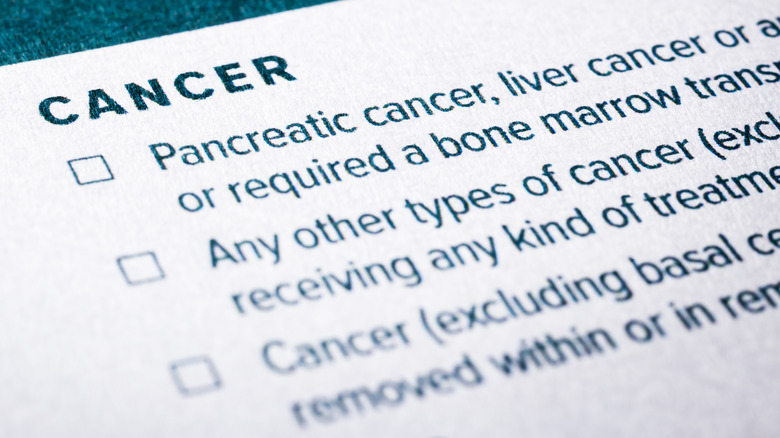Why Are Doctors Seeing More Advanced Cancer Cases?
When it comes to prevention, detection is our most important line of defense against the development of cancer. Routine cancer screenings are encouraged for both men and women. For men, receiving a prostate cancer screening every 2-3 years beginning at age 55 is advised by health officials, though some men may want to begin screenings earlier if they have a family history of prostate cancer (via Johns Hopkins Medicine). Women may opt to begin yearly mammogram screenings as early as age 40, but it's advised for all women to be receiving regular screenings by age 45 (via American Cancer Society).
Regular cancer screenings are critical to maintaining our long-term health and wellness. However, according to CNN, researchers and doctors across the country have seen a decline in cancer screenings as a result of patient backup in health care facilities from the COVID-19 pandemic. Because of this, medical professionals have noted an increase in rates of advanced cancer cases in patients who were unable to receive their annual screenings, thus delaying early detection.
The COVID-19 pandemic influenced delays in cancer screenings
"Number one, we definitely saw a steep decline in cancer screening at the beginning of the pandemic — way back in spring 2020, as health systems needed to adjust and not do elective procedures, including cancer screening, to attend to the acute needs of patients with Covid," Dr. Laura Makaroff, senior vice president for prevention and early detection at the American Cancer Society, told CNN. "Now, there's a backlog that [has been] created."
The decline was so steep in fact, that a 2020 survey conducted by the American Society of Clinical Oncology found that over 60% of individuals throughout the U.S. postponed a cancer screening in the midst of the pandemic.
With advanced cancer diagnoses on the rise, this has heightened concerns within the health care community about the rate at which people of color are being disproportionately affected by screening delays. This is in addition to other factors, including inaccessibility to health insurance. According to the National Cancer Institute, Black men in the U.S. are at the highest risk for death from prostate cancer, and research shows that Black women have the highest cervical cancer mortality rates.
While some facilities across the U.S. have now seen cancer screening rates return to normal, more data is needed to further determine the long-term effects of screening delays from 2020.


